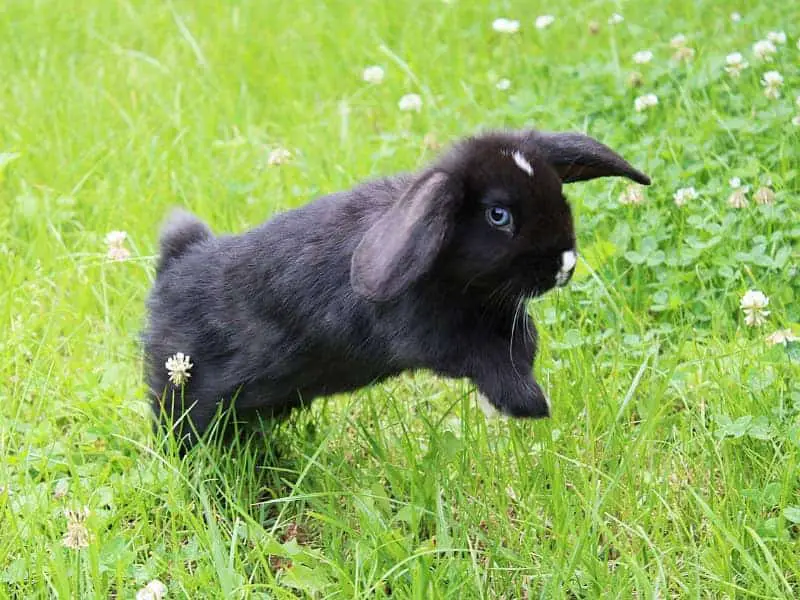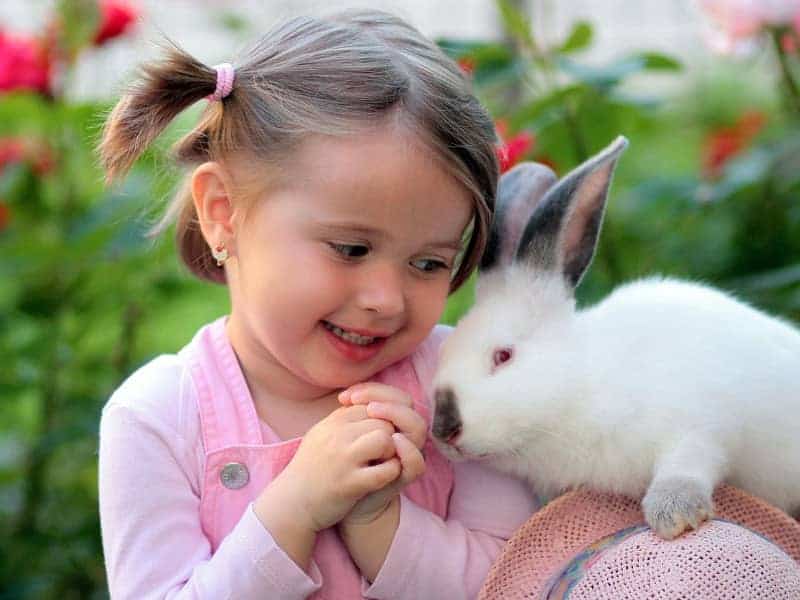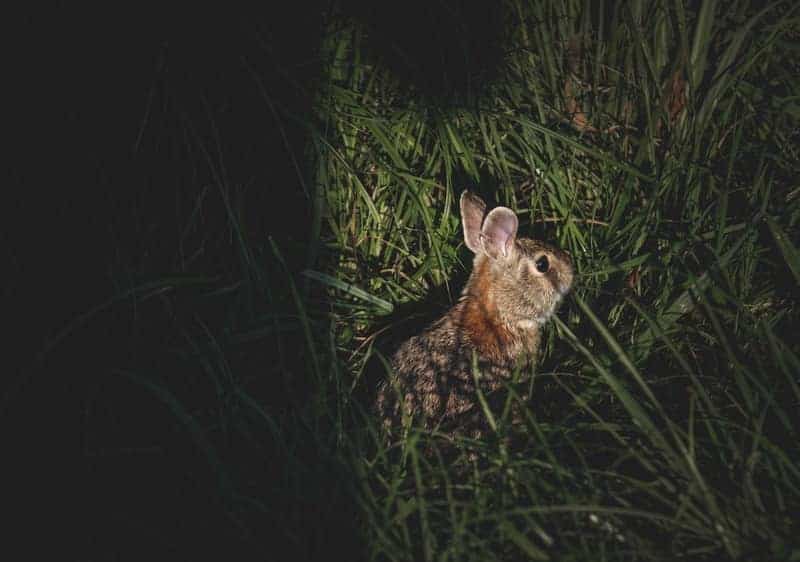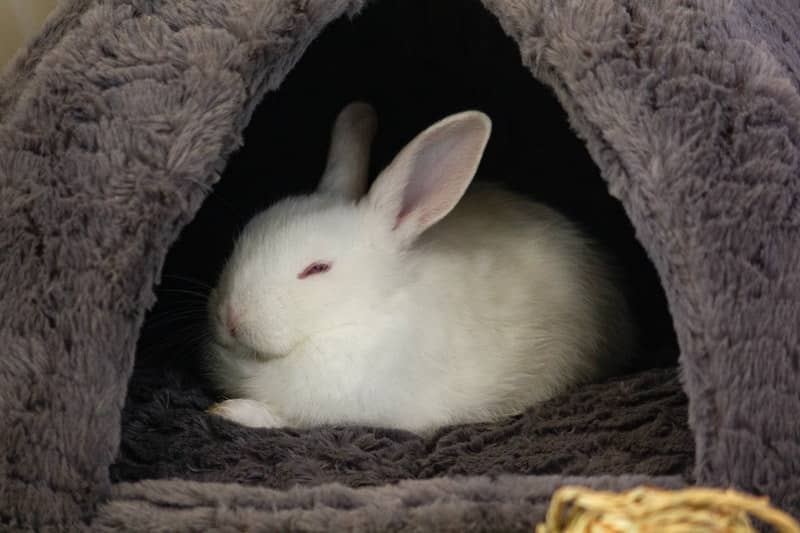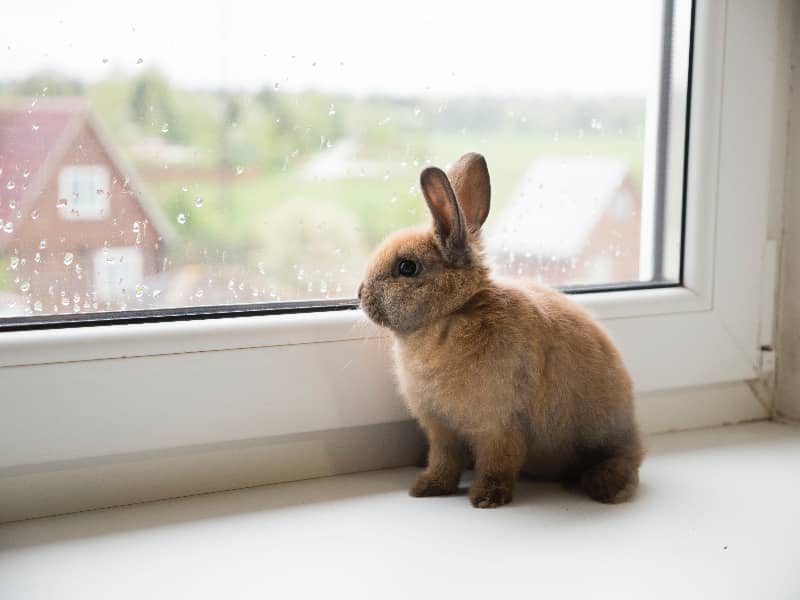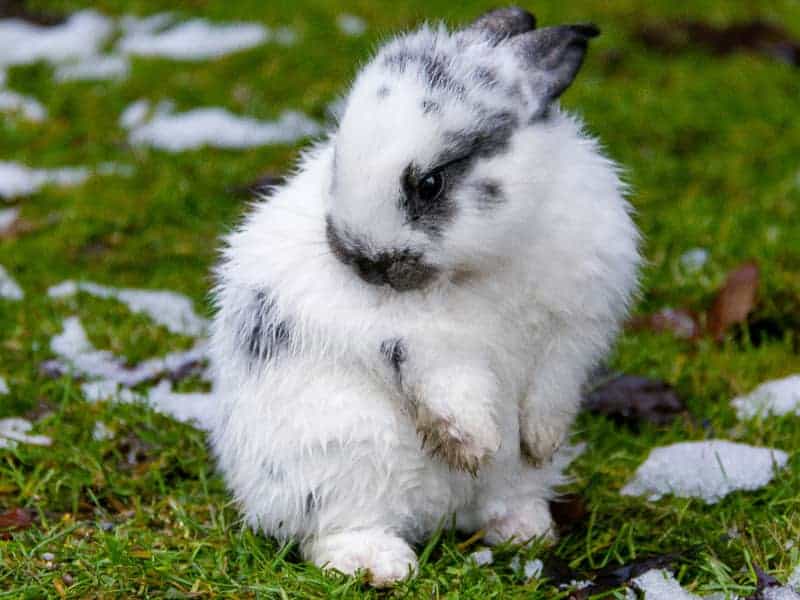
Are rabbits allowed to eat mango?
Hello dear readers, I'm sure you know how important it is to eat healthy. But what about our fluffy little friends? They need a balanced diet too, right? And while we're at it, let's take a look at the happy, juicy, colorful mango. Can rabbits eat mango? This question might be on your mind as you enjoy this delicious fruit and your rabbit looks up at you with his sweet eyes begging.
- Are rabbits allowed to eat mango?
A short excursion into the world of mango
Before we answer the question of whether rabbits can eat mangoes, let's pause for a moment and take a closer look at this amazing fruit. Mangoes are an incredibly delicious, sweet and juicy fruit native to many tropical regions of the world. They are known for their high levels of vitamin C and vitamin A, in addition to the fiber and antioxidants they contain.
They are a must in many summer dishes and desserts and fit perfectly into a healthy diet plan. But that's true for humans. What about our rabbit friends?
Understanding rabbit nutrition
To find out if rabbits can eat mangoes, we first need to understand what a rabbit's diet is like. Rabbits are herbivorous animals, which means that they feed mainly on plants. Their diet consists largely of hay, which provides the fiber they need for proper digestion and tooth wear.
Fresh vegetables and water are also part of a rabbit's daily diet. A small amount of fruit can serve as a treat, but should only be given in moderation due to the high sugar content.
The truth about rabbit and mango
Now that we have a basic understanding of rabbit nutrition, let's get back to our original question: are rabbits allowed to eat mango?
The short answer is yes, but in moderation. Although mangoes contain many healthy vitamins and minerals, they also have a high sugar content. Since rabbits have a sensitive digestive tract, too many sweet fruits can cause digestive problems, like diarrhea.
It is important to note that the amount of mango you give your rabbit depends on its size. A small piece is quite enough, and it should not be given every day. Remember that mangoes (or any kind of fruit) should only be a treat and should not be the main part of your rabbit's diet.
Prepare mangoes for rabbitsn
Now that we know that rabbits can eat mangoes, the next step is to learn how to safely prepare this fruit for them. First, you need to make sure the mango is ripe and fresh. A rotten or overripe mango can be harmful to your rabbit's health.
It is important to wash the mango thoroughly to remove any pesticides or dirt. You should remove the peel of the mango as it is difficult to digest and can cause intestinal problems in some rabbits. In addition, the peel poses a risk of pesticide exposure. Then remove the pit as it is a choking hazard and should not be eaten by rabbits.
Cut the mango into small, bite-sized pieces. As mentioned earlier, the portion should be small. One or two small pieces of mango are sufficient for most rabbits.
Dwarf rabbit and mango
Well, what about dwarf rabbits? Are they allowed to eat mangoes? The answer is yes, but because of their smaller size, the amount of mango you give them should be even smaller. A small piece, no bigger than your thumbnail, should be enough for a dwarf rabbit.
Even though they are small, dwarf rabbits still need a balanced diet, just like their larger relatives. That means lots of hay, some vegetables, and only a tiny amount of fruit. Because dwarf rabbits are smaller, they also have smaller stomachs, and excess sugar can more easily lead to digestive problems.
Observe the reaction of your rabbit
Even though we now know that rabbits can eat mangoes, it is important to note that not all rabbits have the same preferences or digestive systems. Some rabbits might love mangoes, while others might not. Likewise, some rabbits' digestive systems might be more sensitive to fruit than others.
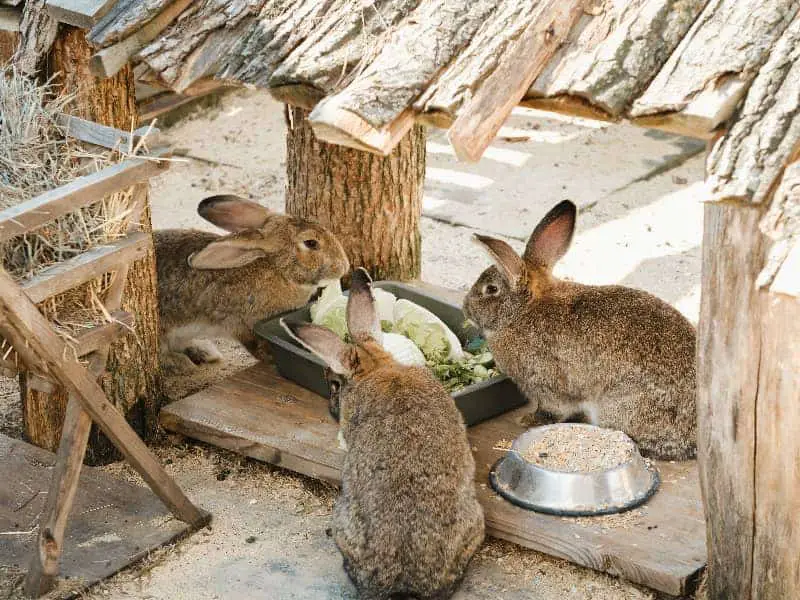
Signs of digestive problems
When you first give your rabbit mango, it is important to observe his reaction to it. A healthy rabbit will have small, firm, round piles of feces. If you notice that your rabbit's droppings are soft or runny after eating mango, you should immediately remove the fruit from the diet and consult a veterinarian.
Some other signs of digestive problems in rabbits are loss of appetite, lethargy, abdominal pain and unusual behavior. If you notice any of these symptoms in your rabbit, you should see a veterinarian as soon as possible.
Rabbit Mango and other fruits
Now that we know rabbits can eat mangoes, you may be wondering what about other fruits. Similar to mangoes, most fruits in moderation can serve as a treat for your rabbit. Apples, pears, strawberries and peaches are some examples of rabbit-safe fruits.
However, you should always remove the seeds, stems and leaves, as these can be toxic to rabbits. And remember that fruits, just like mangoes, should only be a small part of your rabbit's diet.
A touch of the tropics in rabbit nutrition
So, what have we learned? Although mangoes are safe for rabbits, they are definitely not a staple food. They should be treated for what they are: an occasional treat.
It is perfectly fine to give your rabbit a piece of mango occasionally. It adds a little variety to his diet and also provides a bonding opportunity when you feed your rabbit from your hand. But don't overdo it. The main part of your rabbit's diet Rabbit should still be made of hay, fresh water and vegetables consist.
Nutrition as the cornerstone of health
Nutrition plays a crucial role in your rabbit's health and well-being. A balanced diet helps strengthen your rabbit's immune system, promotes healthy teeth, and provides a shiny coat. While mangoes and other fruits have some health benefits, they should never be the basis of your rabbit's diet.
And remember that any new food you introduce into your rabbit's diet should be done slowly and gradually. It's always a good idea to consult your veterinarian beforehand, especially if your rabbit has a pre-existing condition.
Diversity in the diet must be
Even though a rabbit's diet should consist mainly of hay, that doesn't mean it has to be boring. There are many different types of hay (such as Timothy hay, meadow hay, and others) that you can offer your rabbit to add some variety to his diet. The same goes for vegetables - a mix of different vegetables can provide your rabbit with a variety of flavors and nutrients.
Conclusion: Are rabbits allowed to eat mango?
An important aspect of feeding rabbits is the emotional bond that develops between you and your pet. It is a wonderful feeling to give your rabbit a healthy treat and to see its joy. Although it is important to always keep your rabbit's health in mind, it is equally important to enjoy these special moments.
Sharing foods like mangoes can be a great way to strengthen this bond. It shows your rabbit that you care about his well-being and that you care about him.
So in conclusion, feeding your rabbit is both a science and an art. It's all about finding the balance between a healthy diet and enjoying tasty treats like mangoes. As long as you keep that balance in mind, your rabbit will live a long, healthy and happy life.
Author

-
Garden animal - A life with nature
Welcome to my animal blog! My name is Dirk and I am happy to take you on my journey through the fascinating world of animals and gardening.
Born 54 years ago, I have had an insatiable curiosity for the animal world around me since childhood. Although I have moved professionally in other industries, my true passion has always been animals and nature. It is remarkable how a small garden has become such an important part of my life.
Many of my fondest memories are associated with the animals that share our home. Whether it's the curious squirrels that scurry across the trees in the morning, the colorful variety of birds that visit our feeders, or the busy bees and butterflies that pollinate our flowers, every moment with them is invaluable to me.
This blog is my contribution to share my experiences, discoveries and insights with like-minded people. Here I will share stories of unforgettable encounters with animals, give tips on gardening and creating wildlife-friendly habitats, and take you on my journeys through nature.
Thank you so much for being here!
Cordial,
Dirk aka garden animal
Last posts
- 27. February 2024PetsVeganes Hundefutter – Grün und Gesund?
- 18. January 2024ChickensOregano für Hühner
- November 27, 2023HamsterDiurnal hamsters
- November 24, 2023HamsterHamster hammock

